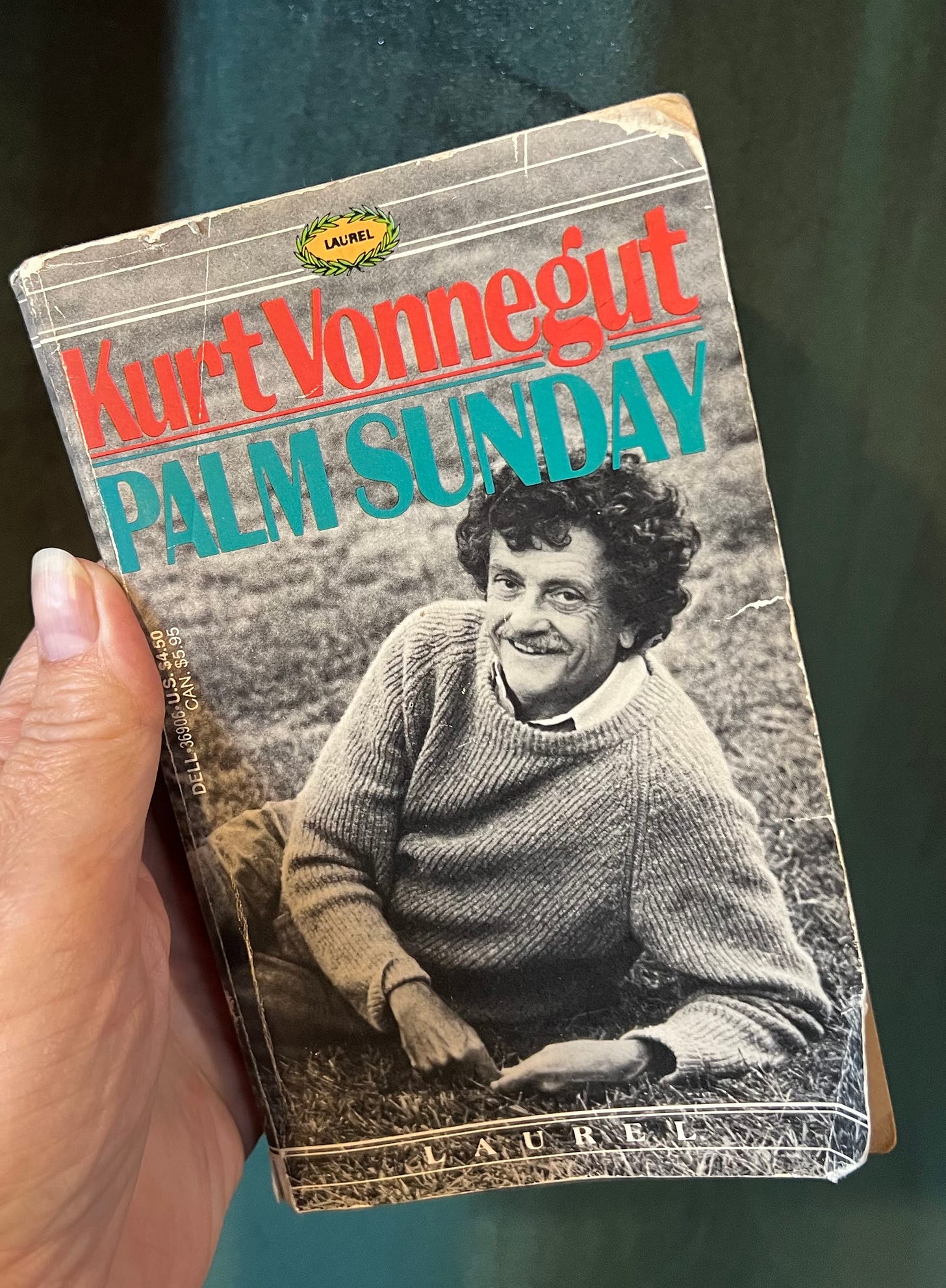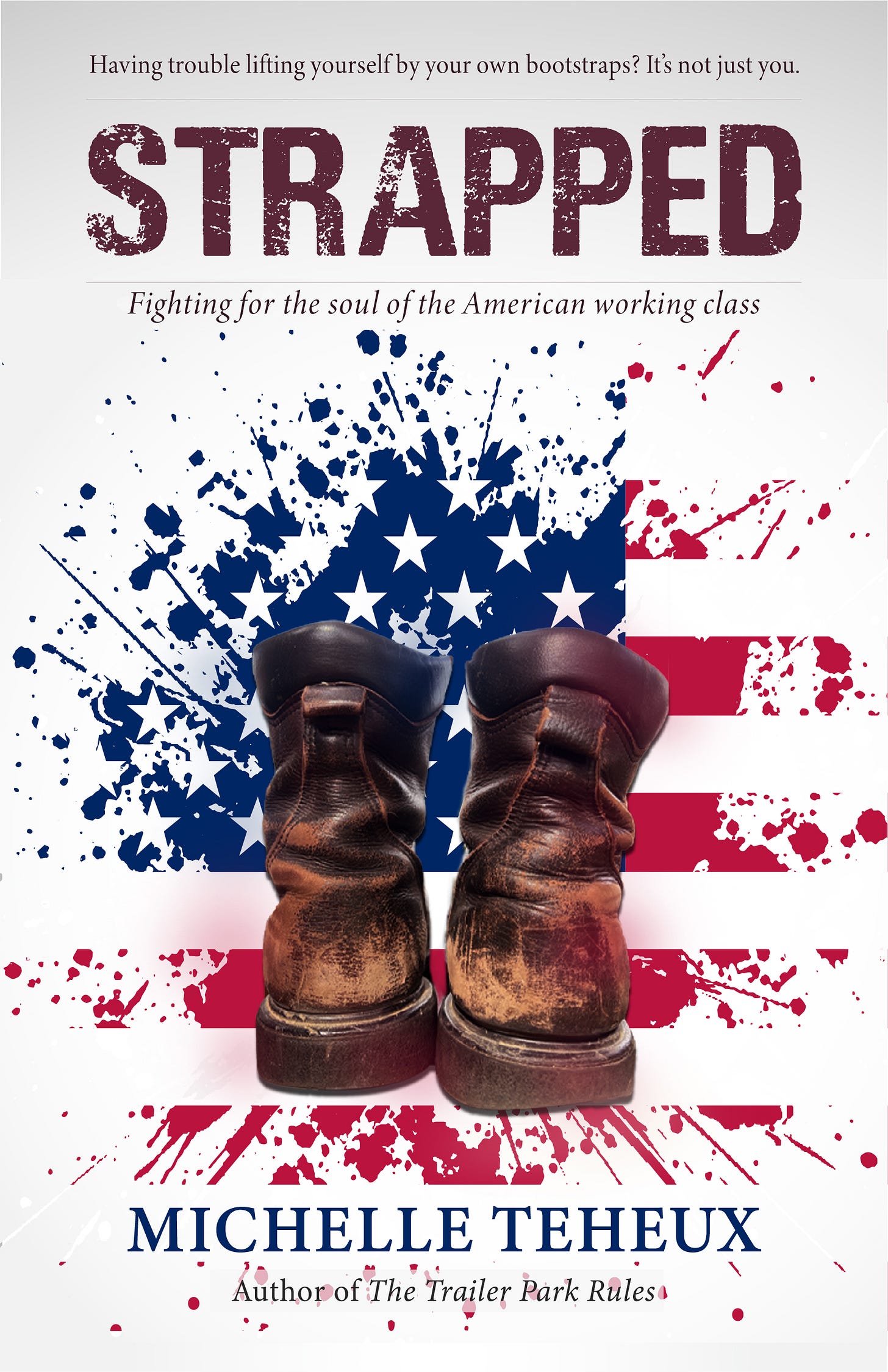Writers Used to Make Good Money
And they didn't have to become multi-media marketing geniuses -- just writing well was enough

Kurt Vonnegut quit his day job as a publicist at General Electric after selling one story to Collier’s magazine for $750 and a second one for $950.*
That was about 75 years ago, and let’s be honest: Most freelance writers would welcome those numbers now, although we wouldn’t quit our day jobs over them.
In case you’re wondering what $750 in 1950 would be in 2024, it’s $9,843.10, according to the CPI calculator.
Vonnegut just wrote. That was it. Nobody told him he needed to interact online with his readers, start a podcast or blog twice a week. Fortunately for him, those things hadn’t been invented yet, so all he had to be good at was writing.
Those days are gone.
People just don’t read as much now
Well, they don’t read books and magazines as much, anyway. Most magazines and newspapers are dying or already dead. Some of you still read here on Substack, on Medium or similar places. Some of you read books on a device and it’s remotely possible that one or two of you occasionally pick up something printed on paper and read it.
Because of these changing trends, the ability to make a living as a writer has never been better and never been worse. To paraphrase another writer, it is the best of times, it is the worst of times.
Anybody can publish anything now
You can be a terrible writer and publish as much stuff online as you want; you can even publish books. Of course, you’re not going to get many readers, but neither do most good writers.
You can be a very good writer and find it difficult to be discovered amongst the mediocrity and downright terrible stuff that’s competing with your work for eyeballs.
The Collier’s editor (he had the fabulous name of Knox Burger, and to paraphrase another writer, I am not making that up) who discovered Vonnegut was what we now call a gatekeeper. He saw Vonnegut’s promise and helped him along.
Nowadays, we do not like gatekeepers
The very idea that a knowledgeable and experienced person might make decisions about what work is worthwhile enough to send out into the world rubs a lot of people the wrong way. We apparently aren’t all that enthused about democracy as a nation, but we demand democratization in the matter of books, music, art and creative works of all kinds.
The person who has never read a book in his life and failed his high school English class has just as much right to publish a book as the avid reader who has been diligently working on his writing for decades, and the two of them are roughly as likely to be discovered by the very small reading public that remains.

I read and write a lot
I am what we would call an outlier. My house is stuffed with books and I read daily. I’ve been a writer of one kind or another since I was a teenager, which is as good an explanation as any for why I’m not financially comfortable today.
The most I have ever made for any single piece of writing is a story that went viral on Medium. We Could Learn a Lot About Sex From the Dutch has now surpassed $21K. Yes, that’s $21,000-plus for one piece. This payout has changed my life in many ways and I’m very grateful, but it doesn’t signal the end of my steady side gig, freelance SEO.
That story is also what we would call an outlier. I have a decent number of stories that have earned somewhere in the vicinity of a grand, but most of my nearly 700 pieces on Medium make less than $100. Some make much less than that.
I would be shocked (though thrilled) if I ever earn this much from a single piece again; Medium appears to be Boosting fewer stories now, and unBoosted stories just don’t earn very much per read.
Here on Substack, I’m happy if I get a couple of paid subscriptions from a new piece. Often I get one or none, so it’s slow going here. I might be able to turn more of my free subscribers into paid subscribers if I forced the issue by paywalling my best work, but I’m not willing to do that — it’s important to me to be accessible to poor or lower-middle-class people.
Vonnegut’s experience wasn’t too unusual
Stephen King has talked about all the short stories he wrote for magazines back in the day to supplement his teacher’s salary. When Ernest Hemingway needed some cash, he’d do some work for newspapers — boy, is that no longer a path forward! I should know; I was a newspaper editor for a daily that’s so close to death that it now has fewer subscribers than my Substack newsletter.
I’m a huge Vonnegut fan, by the way. If you’ve read very much of his work, you know he has an alter ego named Kilgore Trout who appears in many of his stories. I dropped many Vonnegut-related Easter eggs in my novel, The Trailer Park Rules. One of the characters, Jonesy, is a struggling newspaper reporter working on a novel that includes a character named Killian Pike.
Jonesy knows very well that his chance of selling his novel is slim, but that doesn’t stop him.
It doesn’t stop any writer.
So it goes.
*Palm Sunday, by Kurt Vonnegut, page 113.
About Michelle Teheux
I’m a writer in central Illinois. If you like my work, subscribe to me here or on Medium. My new book is Strapped: Fighting for the soul of the American working class.
k











I'm retired now, but I was a content writer for university websites back when websites were something new and mysterious. This was pre-social media era, like Internet 1.0.... You'd think that in an academic setting, writing would be paramount in web creation. The ideas, the organization of ideas, the clear expression of ideas, sharing information for the greater good in an educational setting, etc. But no. The administration thought of websites as technical -- and the people who did the technical coding work & handled the content management systems were handsomely paid and respected. The writers were an absolute afterthought. Gerry McGovern is an Irish website guru who champions content. He advised writers to never admit that they were content people. Doing so would make people think you were just fluff. Play up the technical part of your work...call yourself an information architect. I argued that in a newspaper organization, the workers wear very different hats. The guys who run the printing press aren't the essential employees. They're part of it -- but the role of the writers and editors wasn't just negligible, and it wasn't like you had to play down the fact that you were one of the writing staff (else you wouldn't be taken seriously). I'm so glad to be retired now. I also taught writing at the university level for some years. The position of composition instructors is awful. Low status, long hours correcting papers, low pay. Women's work. Even the academic journals used metaphors like "the housework of the English department" regarding teaching composition. And composition is the "wife" of literature. (Think Lakoff & Johnson's "Metaphors We Live By.") PS: I also love love love Vonnegut and have since I was a young thing. I'm nearing 70 now. I also adore George Saunders, who is a sort of 21st century Vonnegut.
As I am reading your article, Slaughter House Five is right next to me on the sofa. It's a signed limited edition copy. It truly creeped me out that my palm was on this book as I was reading your post. But then my life has been full of synchronicities like this. Keep on writing and we all will keep on reading. Thank you for all you do for those who need your compassion and love.❤